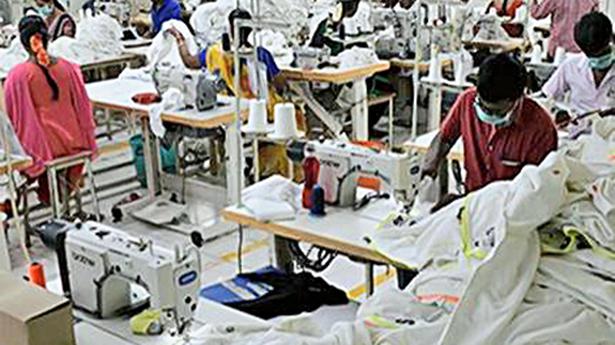
Industry urges revamp of duty remission scheme in Foreign Trade Policy
The Hindu
PHDCCI seeks scrapping of GST on services of international buyers’ agents
Industry is hoping for concrete measures from the new foreign trade policy to give a fillip to India’s exports amid slowing global demand, including an overhaul of the duty remission scheme introduced last year and the levy of GST on global trade intermediaries.
The Commerce and Industry Ministry is expected to unveil the new policy next week as the 2015 policy, currently in operation, expires on September 30 after being extended for two and a half years.
The Remission of Duties and Taxes on Export Products (RoDTEP) scheme was supposed to take care of various duties and taxes outside GST that add to the cost of exports, but is unable to do so because of various anomalies, restrictions and very low rates, PHD Chamber of Commerce and Industry president Pradeep Multani said on Friday.
The industry chamber has urged the government to consider tweaking the scheme so that exporters are specifically reimbursed on the basis of actual taxes and duties paid by them on outbound shipments.
Mr. Multani also pointed out that buying agents and consultants hired by foreign buyers are key intermediaries who facilitate exports of over a billion-plus dollars for micro, small and medium enterprises (MSMEs), but their services are being taxed at 18% under the GST Act.
“We expect removal of this GST levy as it is akin to “Export of Taxes” which is against the basic premise of the GST law as well as against the international trade practices,” he said on Friday.
Last week, the Federation of Indian Exporters’ Organisations (FIEO) sought a review of the Interest equalisation benefits for exporters that were pared when interest rates were coming down, along with other measures to boost exports.

The Union Budget unveiled on February 1, 2025, has come at a time of unprecedented global uncertainty and a flagging domestic economy. The real GDP growth is estimated at 6.4% for 2024-25 and between 6.3-6.8% for 2025-26, a far cry from >8 percent growth required annually to make India a developed nation by 2047. While much attention has been devoted to the demand stimulus through income tax cuts, not enough is said about the proposed reforms in urban development, tariff rationalisation, and regulatory simplification aimed at making Indian cities and corporates more competitive. Since the majority of economic activity is located in cities (urban areas account for ~55% of GDP) and produced by large corporates (~40% of the national output and 55% of India’s exports), the above-mentioned reforms have a pivotal role in improving India’s trend growth rate. Below we unpack each reform.












